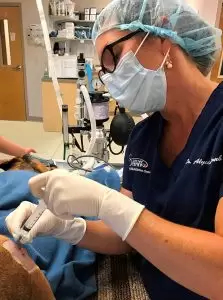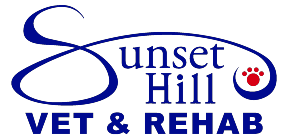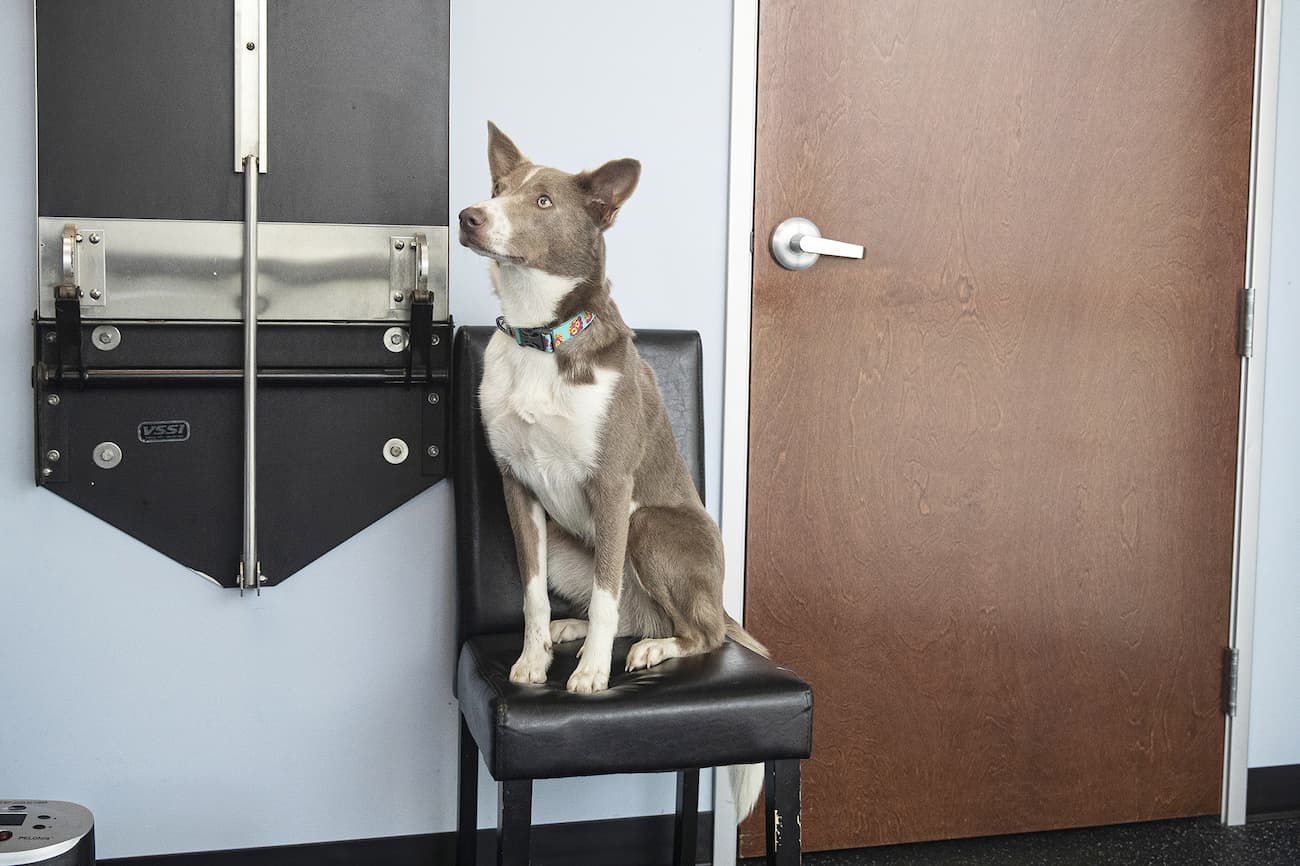Regenerative Medicine
Regenerative Medicine at Sunset Hill Veterinary & Rehabilitation Center
Dr. Alycia Lamb has worked closely with VOSM (Veterinary Orthopedic and Sports Medicine) and Dr. Sherman Canapp and Dr. Debra Canapp, to bring the newest and most effective protocols in regenerative medicine to Seattle, Washington. VOSM, in Baltimore, MD, has been a pioneer in providing Stem Cell Therapy and Platelet-rich Plasma treatments since 2008. Their innovative treatment of injuries that previously were known to be career-ending to a canine athlete, have earned them international acclaim with global speaking engagements and extensive publications.
Musculoskeletal ultrasound is a non-invasive diagnostic tool that Dr Lamb uses to diagnose tendon and ligament spraints/strains. The ultrasound is also used to guide injections of stem cells and PRP into affected tendons and ligaments.
Conditions Regenerative Medicine Treats
Some of the most exciting, new regenerative medicine treatment options are for:
- Partial Cranial Cruciate Ligament Tears
- Osteoarthritis
- Tendon and Muscle Strains
- Ligament Sprains
Peer-reviewed articles on the use of stem cell therapy:
Supraspinatus Tendinopathy diagnosis, treatment and rehabilitation

State-of-the-Art Technology
The regenerative medicine laboratory at Sunset Hill is equipped with advanced technology enabling the processing of bone marrow-derived stem cells as well as platelet-rich plasma.
Sunset Hill is currently using regenerative medicine technology for soft tissue injuries (tendons and ligaments) as well as osteoarthritis.
Cranial Cruciate Ligament (CCL) Tears
One “game changing” treatment is concerning partial cranial cruciate ligament (CCL) tears. Currently, if a partially torn CCL is suspected, many veterinarians will recommend surgery (usually a TPLO) or have the owners rest their dog and give a non-steroidal anti-inflammatory medication. If lameness persists after rest, then the recommendation will again be surgery.
At Sunset Hill, if we suspect an early partial cranial cruciate ligament (CCL) tear, we will recommend a needle scope to examine the CCL directly.
Once we visualize the torn CCL, if it is less than 50% torn, we recommend obtaining bone marrow derived Stem Cells and Platelet-rich Plasma (PRP) that can be processed in-house that day and injected back into the joint to repair the torn CCL without surgery.
We confirm the healing process with a second look via a needle scope at 90 days.
If you have any questions about how regenerative medicine might help your dog, please email our rehab department at info@sunsethillvet.com

